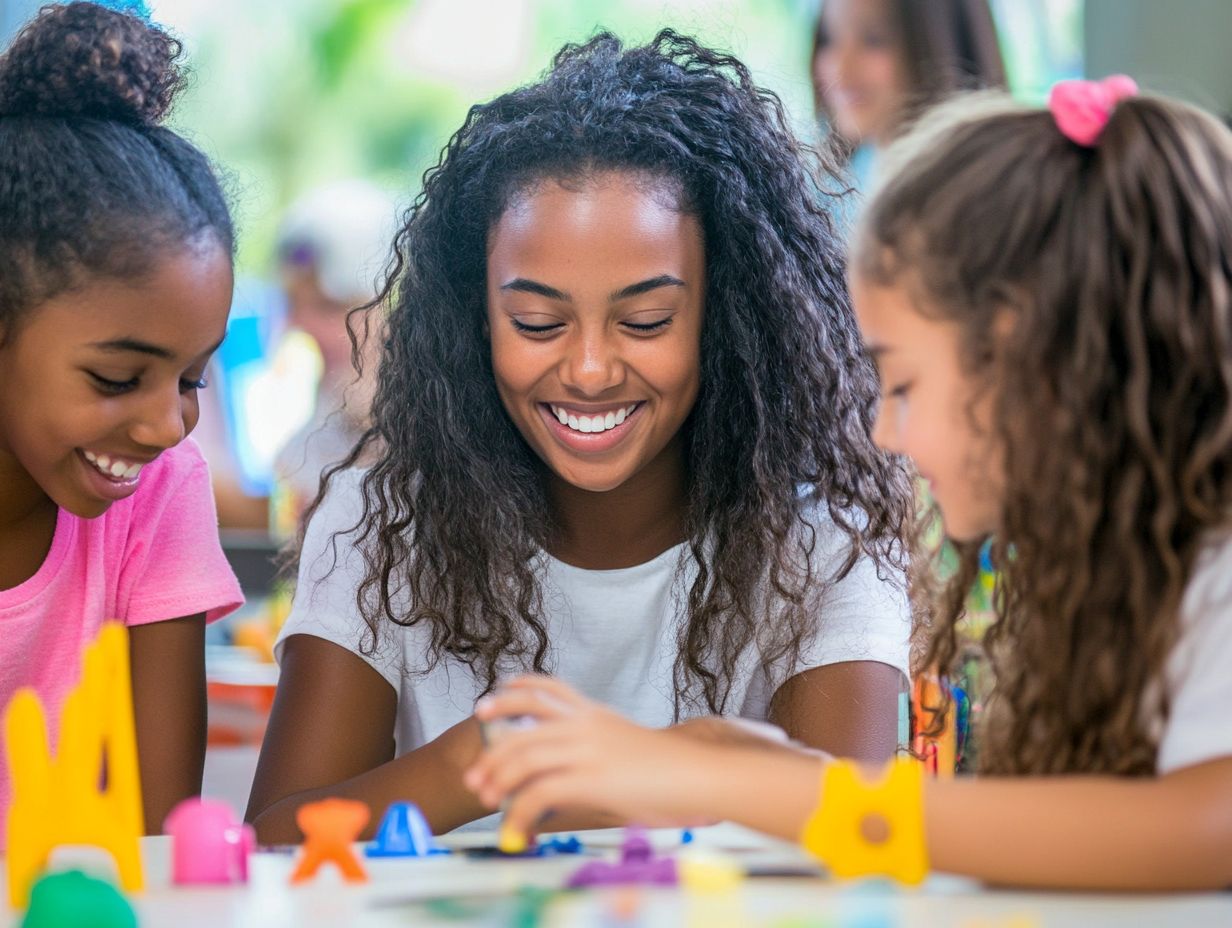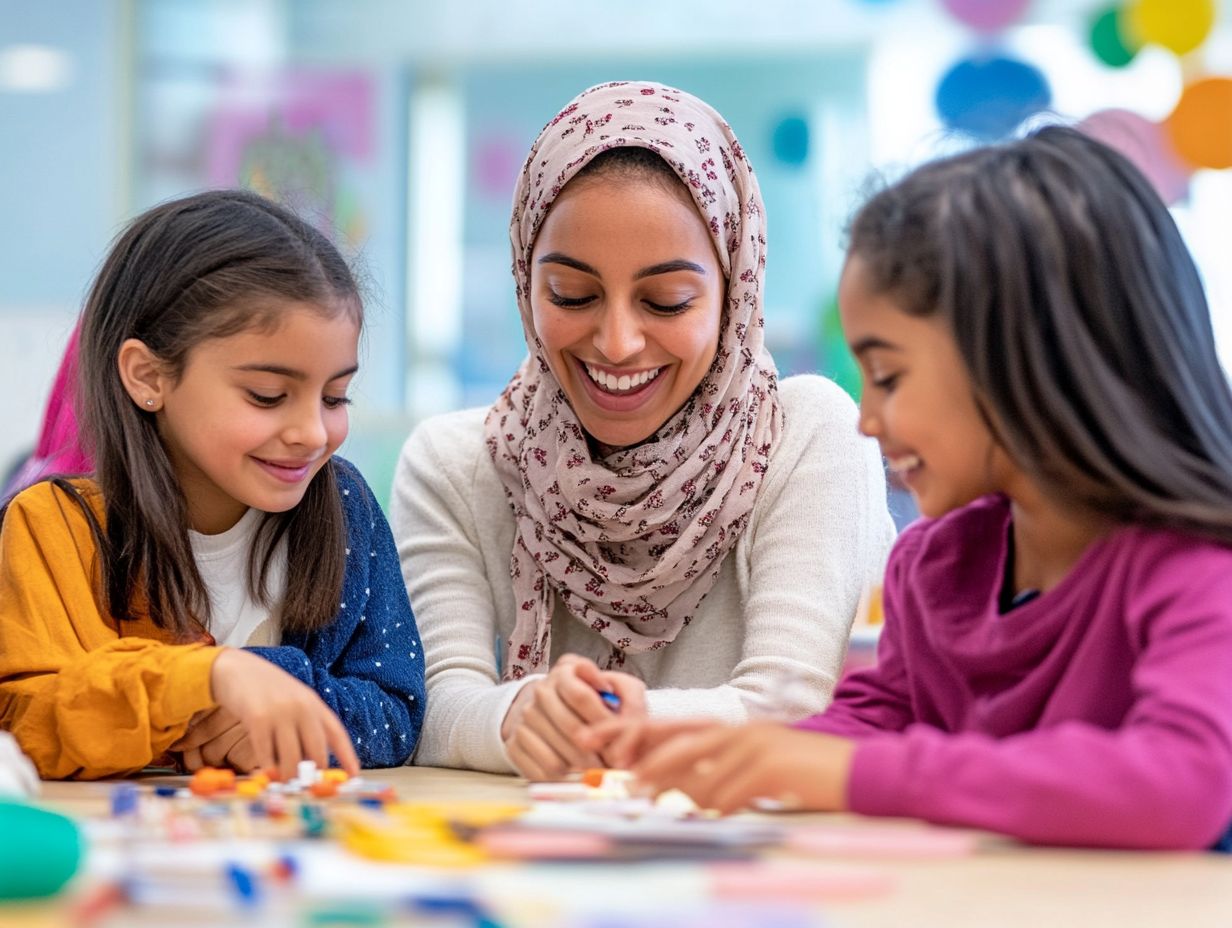Empowering young girls through mentorship is crucial for unlocking their potential and fostering a brighter future. This piece covers the benefits of mentoring, not just for individuals, but for society as a whole.
It identifies the key characteristics of a successful mentor and provides guidance on finding meaningful mentoring opportunities. Additionally, it discusses how to build strong relationships, set goals, and measure progress— all aimed at encouraging leadership and resilience in the next generation.
Continue reading to learn how you can make a significant impact!
The Importance of Mentoring Young Girls

Mentoring young girls is essential because it equips them with enablement and leadership skills that contribute to their personal and professional success, as well as to gender equality in society.
Targeted mentoring programs for girls offer crucial support systems and role models that nurture self-confidence and resilience. By providing girls with valuable life skills and educational opportunities, we encourage their self-discovery and ambition, preparing them to become future leaders who can effectively tackle and overcome societal challenges.
This collective responsibility not only promotes the personal advancement of girls but also facilitates community development and social change.
Benefits for the Individual and Society
Mentoring young girls to become enableed and inspired future leaders brings numerous benefits that extend to society as a whole. This process enhances their self-esteem and confidence while motivating them to excel academically, enabling them to break barriers and strive for excellence.
As they gain the skills and support they need, young girls can emerge as advocates for change in their communities, fostering a sense of collaboration among their peers. The relationships formed during this mentoring process create a ripple effect that promotes gender equality, enableing girls to advocate for themselves and others, thereby creating a better environment for everyone to thrive.
As this collective progress unfolds, it cultivates a supportive community that encourages the holistic development of all its members, ultimately benefiting society at large.
Characteristics of a Successful Mentor
Successful mentors possess a unique blend of traits and abilities that foster productive mentoring relationships, enabling them to inspire and guide young girls in achieving their goals.
Qualities and Skills to Look for

Qualities such as resilience, empathy, and adaptability are essential attributes for mentors of young girls, as they significantly influence the overall mentoring experience.
Specific skills like active listening, assertiveness, and teamwork are crucial in fostering an effective mentoring environment. A mentor with emotional intelligence can identify and address the specific challenges young girls may encounter, creating a safe space for open dialogue.
Strong networking skills are also vital, as they enable mentors to connect young girls with the resources and opportunities necessary to expand their experiences. Together, these qualities and skills enable mentees and prepare them for their future journeys, highlighting the diverse roles that effective life coaching can fulfill.
Finding Mentoring Opportunities
To find effective mentoring opportunities, it is essential to research various organizations and programs that focus on youth development, particularly those aimed at enableing young girls.
Organizations and Programs for Mentoring
Numerous organizations and programs are dedicated to mentoring young girls by offering educational and networking opportunities through workshops and resources.
For instance, the Girl Scouts of the USA provides valuable experiences in leadership training and community service, enabling young girls to develop skills that will benefit them throughout their lives.
Similarly, organizations like Girls Who Code focus on equipping girls with technical skills in computer science while promoting female enablement through education and mentorship.
Additionally, Boys and Girls Clubs conduct life skills workshops aimed at helping young girls build confidence and resilience.
These programs not only enhance academic performance but also foster strong leadership skills, contributing to the development of the next generation of women leaders.
Building a Strong Mentoring Relationship

Effective communication and clearly defined boundaries are essential components of a strong mentoring relationship, as they help establish trust and foster productivity.
Effective Communication and Boundaries
Effective communication and healthy boundaries are two critical components that foster a successful mentoring relationship between mentors and young girls. Open and honest communication builds trust and facilitates the free expression of ideas and concerns, which is essential for mutual understanding and growth. Young girls need to feel heard and valued.
Additionally, self-reflection and emotional intelligence are important skills in this context. Being aware of one’s own emotional triggers and reactions enables mentors to establish boundaries while remaining flexible to the evolving needs of the mentee. This approach creates a safe space for young girls to practice their interpersonal relationship skills.
Mentoring for Success
Mentoring for success involves guiding young girls through their personal and academic journeys while also implementing effective goal-setting techniques and methods for measuring progress.
Setting Goals and Measuring Progress

Goal-setting and progress measurement are essential components of mentoring, as they encourage young girls and help build self-esteem through their successes.
Techniques such as SMART goals—specific, measurable, achievable, relevant, and time-bound—enable mentors to assist their mentees in establishing realistic goals that align with their personal ambitions.
Progress is tracked and success is celebrated through regular feedback sessions, during which discussions about the progress of these goals take place.
These structured elements of mentoring not only lead to tangible academic success but also equip young girls with the tools they need to overcome challenges and promote their overall development.
Empowering Young Girls for the Future
Empowering young girls for the future involves cultivating leadership skills and resilience, allowing them to navigate challenges and seize opportunities in both their personal and professional lives.
Encouraging Leadership and Resilience
Fostering leadership and resilience in young girls is essential for cultivating a growth mindset and encouraging ambition in their endeavors. Through community service, they learn self-advocacy and take action to address social issues, further enhancing their leadership skills.
Workshops offer valuable experiences that teach them teamwork, problem-solving skills, and provide opportunities to engage with mentors who inspire them. These experiences help young girls build self-esteem and develop collaborative skills, ensuring they become well-rounded individuals ready to tackle challenges.
Creating spaces where they can share their ideas and express their opinions is vital in nurturing resilience in their pursuits.
